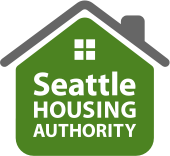By Lisa Richter, Neighborcare Health
It is just as important to pay attention to how you are feeling emotionally, as it is to pay attention to how you are feeling physically. Mental health is essential to everyone’s overall health and well-being, and everyone feels sad, stressed or anxious sometimes. Your mood and habits can affect all parts of your life, such as relationships with family and friends, ability to work or go to school, or take part in activities you enjoy.
A healthy lifestyle can help to improve mental and physical health. Making healthy changes to your lifestyle may seem challenging, but can happen by trying one small change at a time. In honor of Mental Health Awareness Month, here are some things you can do to help improve your physical and mental health.
Find a reason to laugh
Sometimes life is far from funny, but finding moments of joy can help people overcome difficult experiences. Laughter is good for the body and mind – it lowers stress and anxiety, releases the body’s natural pain blockers, supports brain activity, and is good for your lungs, heart and muscles. Here are some easy ways to tickle your funny bone:
- Watch a funny TV show or movie
- Tell jokes with a friend
- Get a goofy mug or picture for your home
- Check out funny videos online
Connect with your community
Spending time with other people leads to better physical health and reduces feelings of anxiety and sadness. Having healthy relationships with people in your community also makes it easier to recover from stressful situations and health issues.
Finding activities you enjoy is a great way to connect with others. If you would like to spend more time with people in your community, volunteer for your building’s Resident Council or another committee. Some Seattle Housing Authority (SHA) buildings also have resources, such as community gardens, technology centers, walking groups and more, to help residents improve their well-being. Reach out to your Community Builder to learn more about activities, events and resources in your building. Or visit the community news and events page for your property on seattlehousing.org.
Spend time with a furry friend.
The company of animals – whether as pets or service animals – can have a big impact on a person’s quality of life and ability to recover from illnesses. A pet can be a source of comfort and companionship during hard times. Animals can also help people of all ages get more physical activity, spend more time with other people, and reduce feelings of sadness, loneliness, boredom, stress and anxiety.
If you are ready for the responsibility and long term commitment of a pet, check out SHA’s pet policy. Please note that the pet policy depends on your building. If you are not allowed to have a pet, you can also volunteer to walk or pet animals.
Get help when you need it.
Behavioral health conditions are common and treatable. If your mental state stops you from functioning well or feeling good, you are not alone. Behavioral health services help people:
- Come up with plans for solving problems
- Feel stronger in the face of challenges
- Change behaviors that hold you back
- Look at ways of thinking that affect how you feel
- Heal pains from your past
- Figure out your goals
- Build self-confidence
If you feel like you are struggling with your mental health, visit Mental Health America’s free, confidential website to check your symptoms.
Behavioral health services at Neighborcare Health are currently available to existing patients. Establish care with a medical or dental provider at the clinic in your neighborhood to be connected with our behavioral health and social work team. This article was provided by Neighborcare Health, an SHA partner. Neighborcare Health is the largest provider of primary medical and dental services for low-income and uninsured families and individuals in Seattle. They serve more than 75.000 patients each year at nearly 30 medical, dental and school-based clinics. Find a clinic in your neighborhood. All are welcome at Neighborcare Health.
